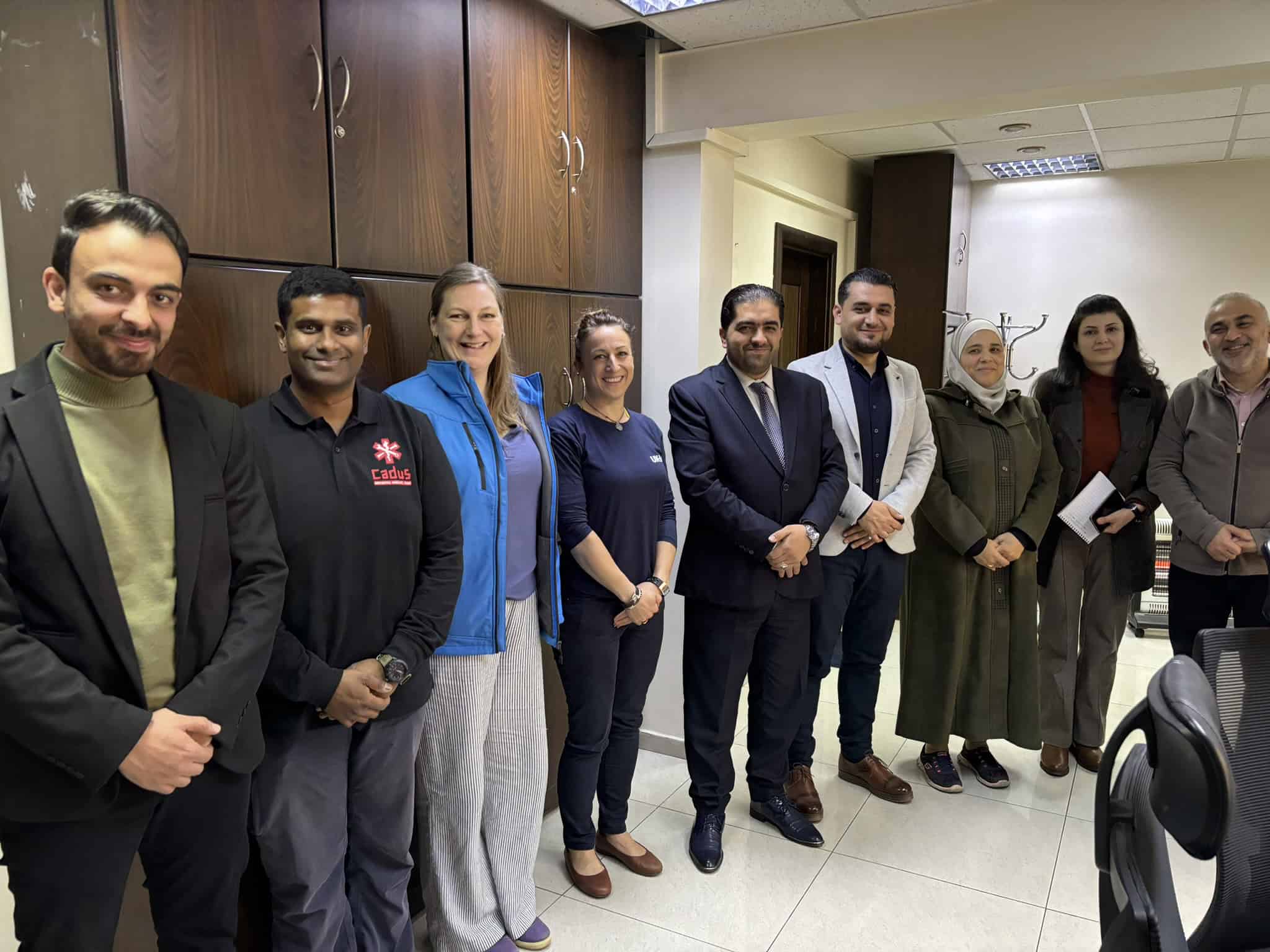
Syria is at a crossroads. 14 years of conflict is imprinted on the country, and the figures are alarming; according to OCHA, an estimated 16 million people, over 65% of the population are in need of humanitarian assistance in 2025, with health identified as a priority need across all age groups.
The crisis has left the health system severely strained and underfunded, and many health professionals have left the country. But, despite this, a workforce of incredibly dedicated health care workers (HCWs) stayed throughout it all, often in partially destroyed facilities, committed to providing access to any medical care possible for their communities.
UK-Med and CADUS medical assessment team spent the past fortnight travelling across Syria to visit health authorities, facilities and HCWs to understand how support could be provided to address existing gaps in quality medical care to the people of Syria.
In collaboration with the Ministry of Health (MoH), the team assessed facilities in As-Suweida, Da’ra, Idlib, Aleppo, Hama, Homs, and rural Damascus. UK-Med Team Lead, Judith Starkulla, emphasises:
‘It was heartening to see the sheer determination of the health personnel that continued to do their job despite all personal and professional hardship. Without them, the situation would be markedly worse and almost unthinkable. There remains immense medical needs and limited resources to meet them in certain areas. We are especially grateful to the kind men and women who received us so openly, assisting us in these initial stages. We hope to return soon and to work together to provide essential, efficient and effective medical care for the Syrian people.”

Overcoming the challenges ahead
Parts of Syria continue to be affected by hostilities and insecurity, which damages vital infrastructure and still affects essential services. This is compounded by a growing number of Syrian refugees and internally displaced persons (IDPs) considering whether to return to their homes and could soon be reliant upon the stretched systems.
While there is variation between the localities, many health facilities operate at quite low capacity and decreased function due to external factors such as destruction of the building itself or access to supplies. After years of sanctions, Syria is gripped by an economic crisis characterised by soaring inflation and currency devaluation, resulting in limited cash flow for those in-country trying to help. Despite their best efforts to sustain provision, the health system is left underequipped.
Key threats to population health include:
- Very high levels of unexploded ordnance (UXO), with IDPs returning to previously inaccessible areas this presents a significant risk of injury and death, particularly for those hurrying to plant on fields that have not been cleared of explosive hazards
- Lack of trauma and surgical capacity, to manage the high numbers of road traffic accidents, UXO injuries and gunshot wounds received by hospitals.
- Inconsistencies in infection prevention control (IPC) in hospitals, impacting the safety of patients and staff, and hindering preparedness and response to deal with disease outbreaks such as cholera.

On the ground
The team visited Tadmur Hospital in Palmyra where only one doctor is serving approximately 25,000 residents. They are especially vulnerable due to the remoteness of their location in the desert and the absence of safety and services. He sees around 150 patients per day in a hospital where roughly 75% of its buildings are destroyed. The next hospital is 160 km away and any emergency will have to be transported in poorly equipped ambulances through a volatile region.
This is the extreme end of the scale but elsewhere, in Da’ra National Hospital, in the South of Syria, less than 30% of beds are currently functional, water supply must be delivered by trucks, and electricity shortages means the hospital relies on generators run on expensive diesel. Service provision somehow continues, thanks to a small diligent medical team, but an injection of equipment, knowledge, hands on support, and funding is urgently required.
Hope and resilience characterise the Syrian people, with many qualified and talented medical professionals ready to build from the ground up. UK-Med and CADUS are eager to return to Syria to work in tandem with these professionals to improve health outcomes in times of emergencies and urgent needs.





